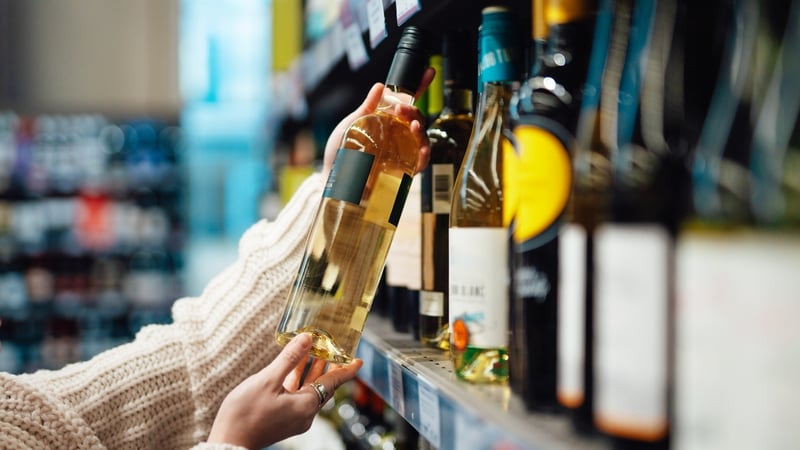Analysis: The rising popularity of organic wines in Ireland is due to personal benefits and sustainability concerns
Róisín invited her girlfriends over to her house to celebrate her 30th birthday. As glasses filled, she noticed something peculiar. Almost every wine bottle was organic. When she asked her friends about their choice, some mentioned the absence of synthetic chemicals, while others associated the higher price with better taste and quality. Several also noted the positive environmental impact on the planet.
But what does organic wine really mean? Organic wines are made from grapes grown according to EU organic farming laws and aged without excessive sulphites. Organic farming avoids synthetic chemicals like fertilisers, fungicides, pesticides, and genetically modified organisms. This method of production is actually the original way wine was made, relying only on natural elements for harvesting.
We need your consent to load this YouTube contentWe use YouTube to manage extra content that can set cookies on your device and collect data about your activity. Please review their details and accept them to load the content.Manage Preferences
From Chowhound, is organic wine better than regular wine?
The purpose of organic wine is to protect wine-growing areas by increasing biodiversity and conserving soil fertility. This beverage supports the three pillars of sustainability (social, economic, and environmental) to ensure profitability, environmental protection, and the long-term viability of the wine industry for future generations.
The Irish wine market experienced a steady growth last year and is projected to continue expanding. Wine consumption in Ireland grew by 5.9% in the past year compared to 2022. In 2023, wine was the second most popular alcoholic drink, holding 28.3% of the total alcohol market share. The Irish wine market is valued at €2.6 billion, with a nearly 7% increase in sales volume since last year. Total wine consumption in Ireland is expected to reach 69.2 million litres, with an average of 11.26 litres per person, and to rise again by 1.5% by 2026.
Young consumers, particularly those under 35 with a higher education, are driving the growth of organic wine consumption. Like Róisín and her friends, many are opting for quality wines, including sustainable options. However, sustainability is a growing priority for all age groups in Ireland, as consumers increasingly recognise the growing importance of buying eco-friendly products. As a result, organic wine sales in Ireland have increased significantly over the past decade. Irish consumers associate the term ‘organic’ with multiple benefits not only for the planet, but also for themselves.
We need your consent to load this rte-player contentWe use rte-player to manage extra content that can set cookies on your device and collect data about your activity. Please review their details and accept them to load the content.Manage Preferences
From RTÉ News, a warming climate means wine is now being produced in Ireland
Personal benefits
Grapes are among the most pesticide-treated crops, with over 280 chemicals used. Wine drinkers, like Róisín, choose organic wine as a healthier option because it avoids synthetic pesticides and is more natural and minimally processed, supporting their quality of life. Consumers also recognise additional health benefits like antioxidants, antiviral and anti-inflammatory properties, lower blood pressure, reduced risk of coronary artery disease, and anti-carcinogenic effects.
Additionally, organic wine is often associated with superior quality, taste, and sophistication, which contributes to its symbolic value and higher cost. For many Irish consumers, choosing organic wine signals their ability to afford premium products, reinforcing a sense of status, especially in social settings like bars and restaurants. The higher price reflects a willingness to invest in quality, taste, and sustainability, with consumers valuing its eco-friendly production. Simply put, this choice signals financial success, a commitment to the environment, and an added sense of exclusivity due to its limited availability.
Environmental benefits
Consumers are increasingly mindful of how their purchases impact the planet, with 78% of Irish people prioritising sustainability values in their decisions. Choosing organic products, including wine, is seen as a way to reduce one’s environmental footprint. Its production is perceived as eco-friendly, protecting biodiversity and supporting sustainable farming practices. As a result, many Irish consumers choose organic wine to align with their values of environmental responsibility and sustainability.
Climate change is affecting wine production, pushing wineries to find more sustainable ways to operate
But it is not only consumers that are benefiting, but also producers. Climate change is affecting wine production, pushing wineries to find more sustainable ways to operate. In the last couple of years, producers in the Loire Valley noticed a decline in wine quality, with reduced flavour and increased acidity. They attributed this to extreme weather events, such as frost and wildfires, which negatively impacted the soil and ultimately affected the grape harvest. Many have decided to switch to organic production, recognising not only the need but their responsibility to the planet.
The global area of organic vineyards has grown by 234% since 2007, reaching 400,000 hectares in 2017. Consumption of organic wines has doubled in the last decade and is expected to grow by 8.7% a year until 2027. Europe leads the market, accounting for 78% of global sales, while the rest of the world makes up 12%
In summary, organic wine sales in Ireland are expected to continue growing. Younger Irish consumers are driving this trend, motivated by the beverage’s appeal as a sophisticated, environmental, and health-conscious choice. However, Róisín and her friends are likely unaware of its broader positive effects on producers and the planet. This creates a win-win situation for consumers, as they benefit from a high-quality product that supports their well-being and social image while contributing to sustainability efforts through eco-friendly farming practices.
Follow RTÉ Brainstorm on WhatsApp and Instagram for more stories and updates
The views expressed here are those of the author and do not represent or reflect the views of RTÉ. Always drink responsibly




